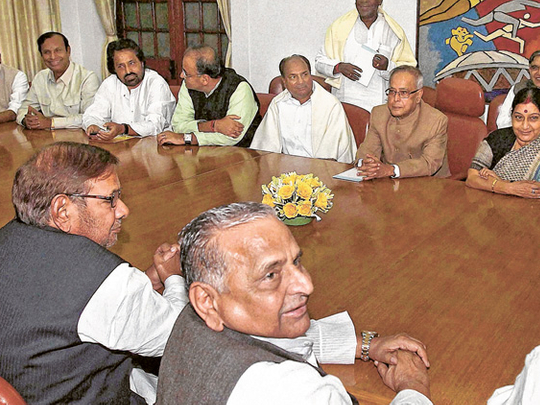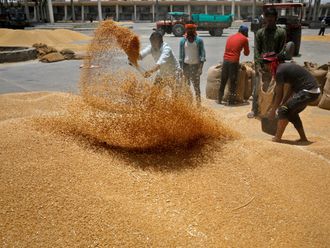
New Delhi: India's coalition government has called for a meeting with the opposition on Monday to try to break a deadlock in parliament over a corruption scandal that has prevented economic reforms from being approved.
The opposition has halted parliament sessions since early November over demands for a joint parliamentary investigation into the sale of telecoms licences and spectrum in the world's fastest growing mobile phone market.
The Congress party-led coalition government has so far refused such a request, saying there is no need for one as a separate investigation is under way.
Former Telecoms Minister Andimuthu Raja, who was forced to resign a week ago, is accused of selling licences and spectrums too cheaply in 2007-2008, potentially costing the state up to $39 billion in lost revenues, according to an audit by an official watchdog.
The political storm threatens to cut short parliament's current winter session. The government had planned to pass a banking laws amendment bill, which would improve the capital raising capacity of banks and strengthen the regulatory powers of the central bank.
A bill to give a slice of the profits from mining to displaced people is also at stake.
The all-party meeting was set for 0730 GMT, opposition leader Sushma Swaraj said.
The growing telecoms scandal has reached all the way to Prime Minister Manmohman Singh.
In a rare move, the Supreme Court last week reprimanded Singh for taking 16 months to look into the allegations against Raja, a member of a party allied to Congress. The court demanded Singh himself explain what had happened, tarnishing his squeaky-clean image.
Documents filed to the court on Saturday defended the prime minister, saying he followed correct procedures in looking into the issue. Singh decided not to approve a request to prosecute Raja.
A representative of Singh will answer questions in the Supreme Court on Tuesday, part of a request from the court for disclosure on how the prime minister handled the issue.
Telecoms stocks fell last week on fears the authorities would cancel some licences or ask operators for additional payments. The broader market has largely shrugged off the political storm in Delhi.
Corruption has long been a major problem in India, Asia's third-largest economy.
The ruling Congress party has pledged to crack down on graft, but it has been put on the defensive in recent weeks when it was forced to fire three senior officials over corruption allegations, including over the problem-riddled Commonwealth Games.
India was ranked 87th in Transparency International's 2010 ranking of 178 nations based on the perceived level of corruption. Rival China was ranked higher, at number 78.
While Singh and his coalition government are likely to survive the scandal, the criticism is expected to further weaken the federal government's ability to move key economic reforms through parliament.











